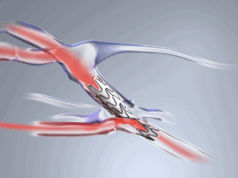 Invizius has recently announced via press release that eight patients have been successfully treated at the National Institute for Health and Care Research (NIHR) Manchester Clinical Research Facility (CRF) with its novel product, H-Guard priming solution, in the company’s first-in-human Phase 1 clinical study.
Invizius has recently announced via press release that eight patients have been successfully treated at the National Institute for Health and Care Research (NIHR) Manchester Clinical Research Facility (CRF) with its novel product, H-Guard priming solution, in the company’s first-in-human Phase 1 clinical study.
The study was conducted at the NIHR Manchester CRF located at the Manchester Royal Infirmary (MRI), part of the Manchester University NHS Foundation Trust, and is led by Sandip Mitra and co-investigators, Leonard Ebah and Duha Ilyas (all Manchester Royal Infirmary, Manchester, UK).
The study is investigating the safety and tolerability of the pioneering product, H-Guard, in patients undergoing haemodialysis (HD) who are vulnerable to dialysis-induced immune activation. Invizius stated in its press release that immune activation occurs when a patient’s blood comes into contact with foreign surfaces in the dialysis circuit, which can result in excessive inflammation, coagulation, vascular and organ damage and other adverse consequences. The press release also stated that, during the trial, H-Guard is flushed through the dialysis machine, coating all blood exposed surfaces prior to commencing treatment. The aim is, according to Mitra et al, to prevent serious complications by attenuating the patient’s immune response to the dialysis procedure.
The trial involved a single treatment with H-Guard with pre- and post-treatment evaluations demonstrating the safety and tolerability of the H-Guard product. According to researchers, dialysis worked as normal when the product was attached to the filter, adding that the next step in the trials is the design of a Phase2b study for acute kidney injury (AKI) where the continuous renal replacement therapy (CRRT) filter in an intensive care unit (ICU) is coated with H-Guard. The researchers hope that this study will demonstrate a reduction in complement mediated renal tubule damage resulting in less time spent in the ICU and prevention of chronic kidney disease (CKD) developing.
Magnus Nicolson, chief executive officer (CEO) of Invizius, said: “It has been a pleasure to work with Professor Mitra and his team to demonstrate the safety of H-Guard on dialysis patients. This is an important milestone for H-Guard and Invizius, allowing us to progress into a larger efficacy study showing the clinical benefits of controlling complement activation in CRRT and a number of extracorporeal systems.”
Mitra also commented, stating: “As our aim is to improve the outcomes of patients on dialysis, we are very encouraged by the results of the H-Guard trial.” She also added that their results were recently presented at the 61st European Renal Association (ERA) congress (23–26 May, Stockholm, Sweden), and that this trial “is the largest kinetic analysis of complement activation in routine HD ever undertaken in UK. Our results indicate patient-specific complement activation associated with inflammatory response during routine haemodialysis. Reduction in complement activation in HD may yield significant clinical outcome benefits.”












